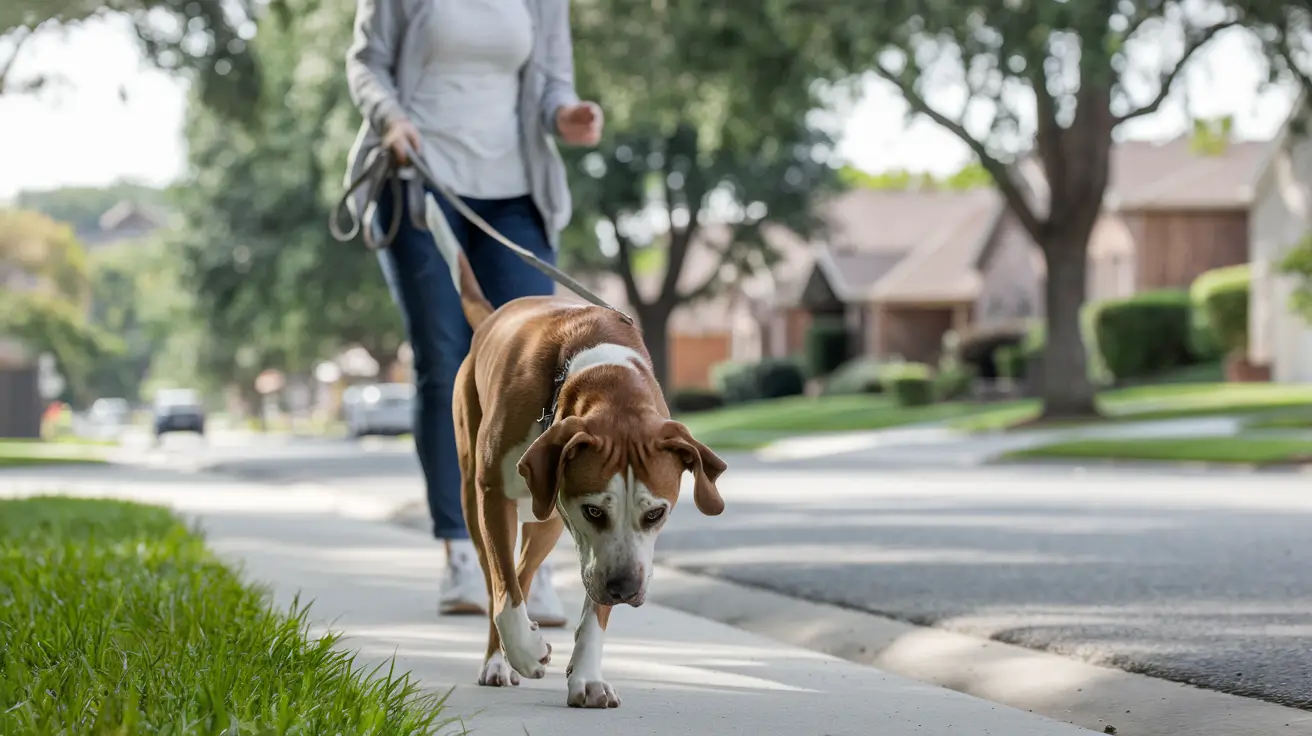The Health Indicator: Observing Your Dog's Stool
Monitoring your dog's stool is a vital aspect of maintaining their health. By observing changes in your dog's poop, you can gain insights into their overall well-being. Normal stools are usually firm and lack any unusual components. However, the presence of mucus, which can appear as shiny slime or clear jelly, might indicate health issues. While a small amount of mucus can be normal, excessive or persistent mucus warrants attention. Recognizing what constitutes a normal versus abnormal stool can help you detect potential health problems early.
Recognizing Mucus: What to Look For
Mucus in dog poop is often described as a shiny slime or clear jelly surrounding the stool, although it can also be mixed in or appear on its own. Its color can vary from clear to yellow or even white, depending on its composition. Understanding these visual cues can help pet owners identify when their dog might be experiencing an issue that requires further investigation.
When to Worry: Mucus as a Symptom
Assessing Severity: Is It an Emergency?
In some cases, mucus in dog poop may necessitate immediate veterinary attention. This is particularly true for dogs that are young, old, or have existing medical conditions, as they are more vulnerable to health complications. If the mucus is accompanied by other worrying symptoms or persists over time, it is advisable to consult a veterinarian promptly.
Accompanying Symptoms: When Mucus Is Not Alone
Mucus in the stool can sometimes be accompanied by other symptoms such as diarrhea, blood, vomiting, or weight loss. These additional signs can indicate more severe underlying issues and should not be ignored. If your dog exhibits any of these symptoms alongside mucus in their stool, it is crucial to seek veterinary care to determine the cause and appropriate treatment.
Common Causes of Mucus in Dog Poop
Gastrointestinal Infections and Parasites
Bacterial, viral, and fungal infections are common culprits of increased mucus production in dogs. These infections often present with symptoms like diarrhea, vomiting, and loss of appetite. Intestinal parasites such as whipworms, tapeworms, and Giardia can also lead to mucus in the stool. Identifying the specific parasite through a fecal exam allows for targeted treatment with dewormers.
Dietary Factors: Indiscretions and Allergies
Dietary indiscretions, such as sudden changes in diet or food allergies, can irritate the intestines and result in mucus production. To manage these issues, it's important to gradually introduce new foods and consider a therapeutic diet if allergies are suspected. Returning to the original diet can often resolve mucus-related problems caused by abrupt dietary changes.
Stress and Inflammation: IBS and IBD
Stress is a significant factor in conditions like irritable bowel syndrome (IBS), which can lead to excessive mucus production. Inflammatory bowel disease (IBD) and colitis are inflammatory conditions that also cause mucus in the stool. These conditions might also involve weight loss, vomiting, or diarrhea, and often require dietary adjustments and immunosuppressive medications for management.
Serious Conditions: Cancer and AHDS
More severe causes of mucus in dog poop include gastrointestinal cancer and acute hemorrhagic diarrhea syndrome (AHDS). Cancer may require treatments such as surgery, chemotherapy, or radiation, while AHDS involves supportive care with anti-nausea drugs, fluid therapy, and antibiotics. Both conditions necessitate prompt veterinary intervention.
Diagnosis and Treatment of Mucus in Dog Poop
Veterinary Diagnosis: Identifying the Cause
To determine the cause of mucus in your dog's stool, a veterinarian will conduct a thorough health history and physical exam. Diagnostic tests may include fecal exams to identify parasites, blood work for infections, urinalysis, and imaging like abdominal X-rays or ultrasounds. In some cases, endoscopy or biopsy of the intestinal tract may be necessary to examine tissue samples for signs of inflammation or disease.
Treatment Options: From Diet Changes to Medications
Treatment for mucus in dog poop depends on the underlying cause. Options may include dietary changes, prescription diets, anti-diarrheal medications, immunosuppressants, or antibiotics. Probiotics can also be beneficial in managing digestive health, helping to restore balance in the gut microbiome.
Managing and Preventing Mucus in Dog Poop
Home Remedies and Short-term Solutions
For mild cases of mucus in the stool, home remedies can be effective. Switching to a highly digestible diet, adding fiber, or feeding a homemade diet of boiled white meat chicken, white rice, and canned pumpkin can help manage mucus production. Probiotic supplements specifically designed for dogs may also aid in maintaining digestive health.
Long-term Management and Monitoring
Ongoing monitoring and management are crucial, especially for chronic conditions like IBD. Regular vet consultations and vigilant observation of your dog's stool can help prevent and address issues promptly. Maintaining a consistent diet and minimizing stress are key strategies in managing long-term health.
Conclusion: Keeping an Eye on Your Dog's Health
Vigilance in monitoring your dog's stool for mucus and other abnormalities is an essential part of overall pet health management. By staying attentive to changes in your dog's poop, you can ensure timely intervention and maintain their well-being. If you notice persistent mucus or other concerning symptoms, consulting a veterinarian is crucial to determine the cause and appropriate treatment.






